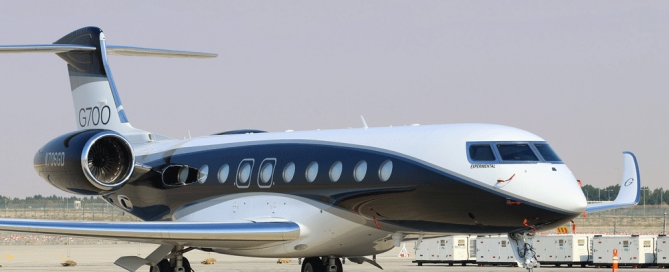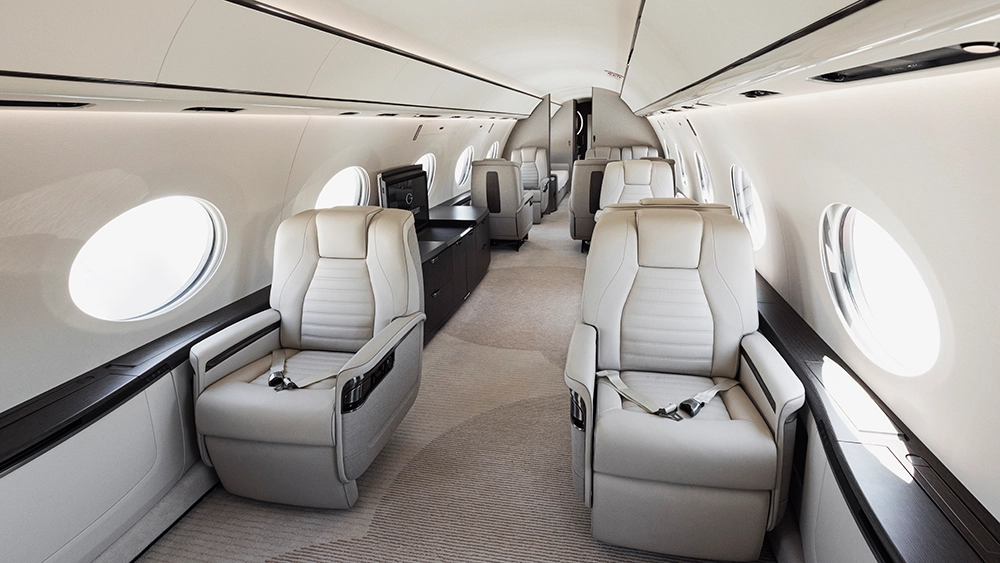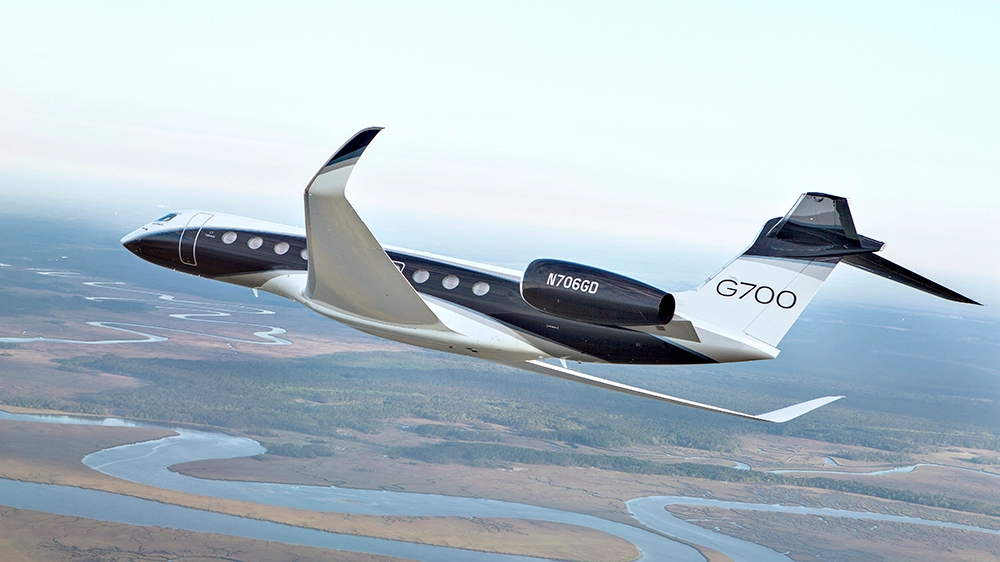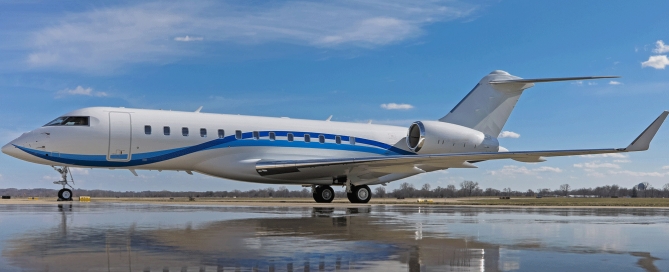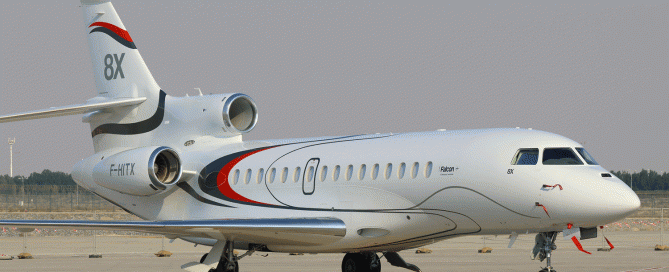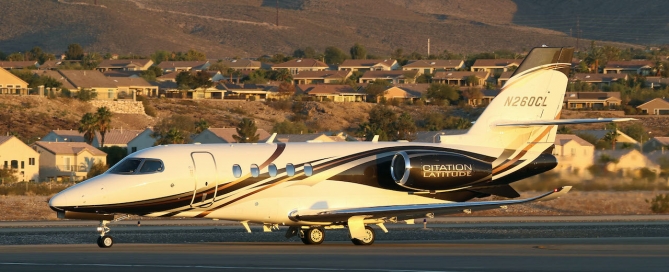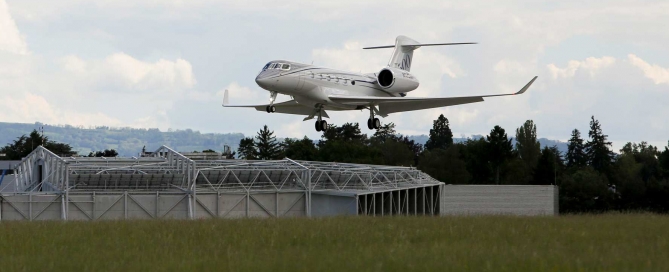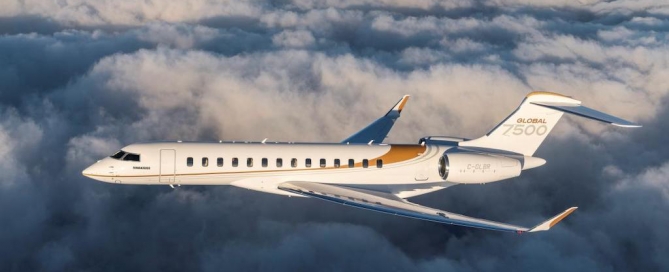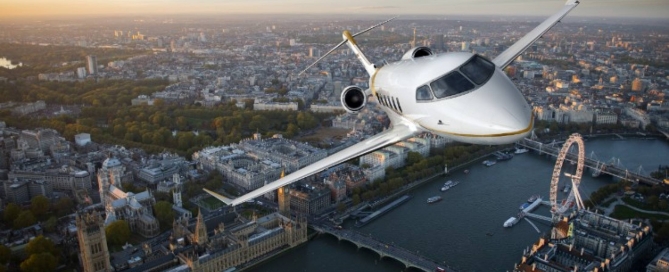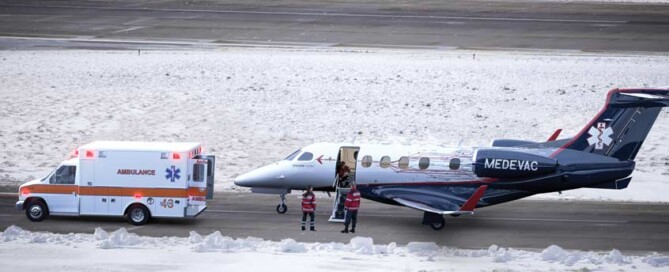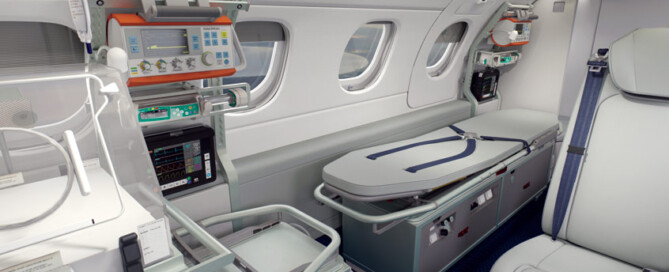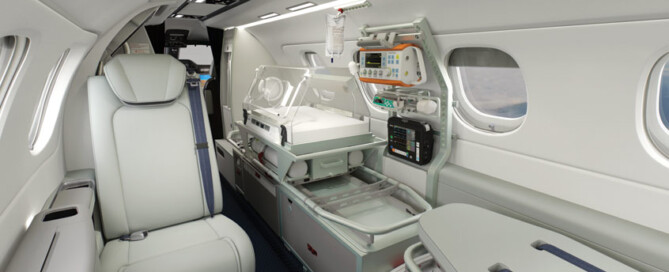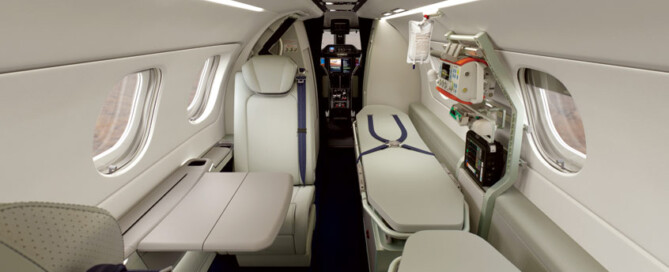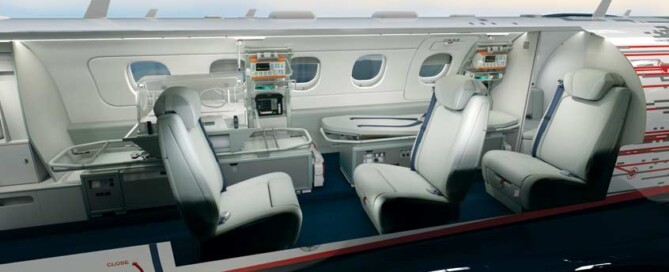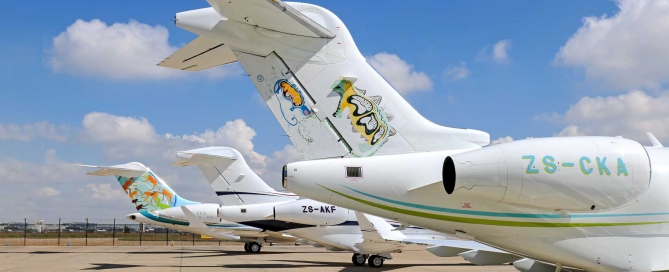Gulfstream G700 Arrives for MEBAA Debut on World Tour
Gulfstream G700 Gulfstream Aerospace (Static A12) is showcasing the five-cabin-zone Gulfstream G700, the U.S. company’s forthcoming ultra-long-range flagship, this week at MEBAA 2022 in the model’s debut appearance in Dubai. Boasting what Gulfstream G700 claims would be the tallest (6 feet 3 inches; 1.90 meters) and widest (8 feet 2 inches; 2.49 meters) cabin in a purpose-built business jet, the 7,500-nm Gulfstream G700 is expected to enter service in mid-2023. The Gulfstream G700 on display features a corporate-configured cabin along with what Gulfstream terms an “ultra-galley” with more than 10 feet of counter space; a grand suite with fixed bed and bright, spacious lavatory with shower; circadian lighting system; and new seat design of the Gulfstream G700. “It really shows the flexibility of the design that our team has created,” said Gulfstream president Mark Burns about the Gulfstream G700. The twinjet arrived in Dubai during a world tour aimed at demonstrating the precocious maturity of the Gulfstream G700 aircraft model, which has been in flight testing since early 2020. The Gulfstream G700 tour began following the aircraft’s NBAA-BACE debut in Orlando, Florida, in October and includes some 20 cities on six continents, with visits to Riyadh, Saudia Arabia, for the Future Investment Initiative and Bahrain for the Bahrain International Airshow already in the logbook. With a Mach 0.85 long-range cruise speed and Mach 0.90 high-speed cruise, the Gulfstream G700 set eight international city-pair speed records during flight tests and established another on this tour for a flight from Istanbul to Van Don, Vietnam, where the model had its Asia-Pacific debut last month at an event hosted by the Gulfstream G700 sales representative Sun Air. “Vietnam and Southeast Asia are strong developing markets for Gulfstream G700,”
